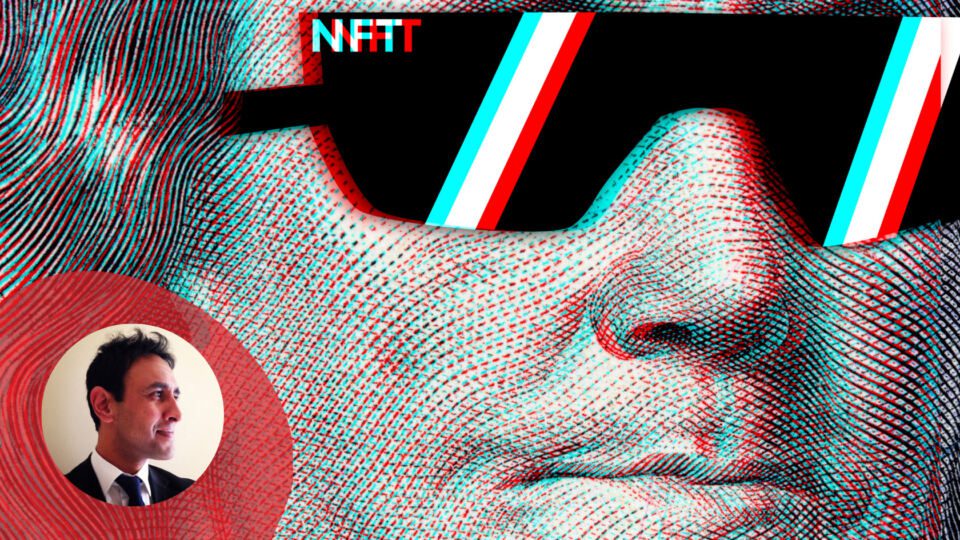Mike Winkelmann’s digital art project EVERYDAYs sold for a record-setting $69 million in March 2021. That moment is widely credited with kicking off the NFT craze that followed throughout the remainder of the year — and continues to this day.
Indeed, 2021 brought a flurry of NFT drops by artists, followed by collections from sports teams along with generative collections like Bored Ape Yacht Club and more. Now we are moving into a new phase: NFT Utility. And 2022 is shaping up to be a big coming out party for NFTs for marketers. Here’s how and why exactly.
Utility
Much of the dialogue in 2021 was focused on NFTs as a singular collectible, like a piece of art or as a social media profile picture to exhibit belonging to a community. But because NFTs live on the blockchain, they can actually have utility.
What that means is that an NFT can double as a ticket for a live event or grant access to a behind-the-scenes livestream, a private Discord group and an upgrade over time That’s because the smart contract within an NFT is identifiable on the blockchain and can confirm the rights and uses associated with that NFT.
This is potentially game-changing for retailers, who can sell — or even give away — NFTs that provide access to online stores, product discounts, exclusive goods and pop-ups. What’s more, these benefits can be updated over time, so a retailer can confer any of these aforementioned utilities as time goes on. Think: A discount one month and an exclusive livestream the next.
Retailers can even offer tier-based NFTs that provide different rewards at different levels.
Virtual Communities
These NFTs also allow brands to create virtual communities populated by the consumers who own them.
A good example is the Bored Ape Yacht Club, a collection of 10,000 NFTs that launched in April 2021. The NFTs also serve as admission to an online social club that reportedly boasts Jimmy Fallon, DJ Khaled and Steph Curry as members.
As Rolling Stone put it, these NFTs “aren’t just viral images — they’re tickets to a whole new lifestyle.”
Now, the team behind the collection is signing deals with brands like Adidas. A record label wants in, too. Soon you’ll see Bored Ape merchandise.
Star Power
This isn’t a fluke. In 2022, we expect musicians, artists and teams — i.e. anyone with enough star power to command a huge real-life audience — to drive growth in virtual communities. Think Fan Club access. These celebrities will start to issue NFTs that will provide utilities akin to those we mentioned earlier to engage audiences and grow virtual communities — and generate additional sources of revenue. Fans who buy the NFTs can later trade them in to be sold again to other fans, which makes this an ongoing revenue stream for creators as they participate in the resale royalties created. It won’t take long for brands to follow. And it’s the utility within that will drive growth.
Experimentation
We also expect to see these virtual communities converge with real life as brands tap into utility to offer NFTs that, for example, unlock discounts and exclusive product drops.
But the pendulum will also likely swing the other way too as these communities expand in virtual worlds.
All in all, we expect to see much more experimentation and a permanent role in the marketing mix with NFTs in 2022, as marketers and creators alike seek to entice their followers to express fandom and collect rewards.
The Mainstream
As a result, more consumers will start to understand what NFTs are. It may still not feel entirely mainstream in 2022, but it will certainly move in that direction. That’s because consumers will see more and more brands and creators using NFTs, which will help fuel discovery.
Technical hurdles remain, such as having access to cryptocurrency and a crypto wallet, but increasingly NFTs are being sold with credit cards, which significantly lowers the bar to entry for the average consumer.
Shiv Madan is Co-founder and CEO of Moonwalk.com, a digital wallet and creator platform powered by blockchain. Before creating Moonwalk, he founded and served as CEO of Blockparty, a leading NFT marketplace, and has held roles at Ability AI, eBay, Accenture, Lehman Brothers and Time Inc.




